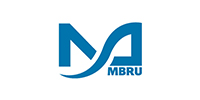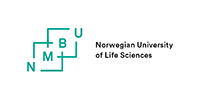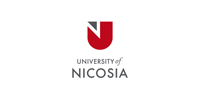Over the last year, we have been running regular workshops with behaviour scientist Claire at Behaviourwise1. She taught us the power of sludge audits, and we have not looked back.
Many experts believe that all organisations (private and public), should be conducting regular sludge audits, a term coined by behavioural scientist and consumer rights advocate Cass Sunstein. You can watch an introduction to sludge here.
Sludge audits help organisations identify and eliminate unnecessary bureaucratic processes that slow down decision-making and hinder productivity. By streamlining these processes, companies can enhance efficiency, reduce costs, and improve overall employee satisfaction. This proactive approach ensures that resources are optimally allocated and that the organisation operates more smoothly and effectively. An excellent example of this is with the New South Wales government2, who empowered all of their teams to remove barriers to improve services for their staff and local people. It was a huge success.
However, some experts argue that sludge audits may not be effective for all organisations. They believe that the concept, while useful in theory, can be difficult to implement in practice. Sludge audits require a deep understanding of human behaviour and organisational processes, which may not be feasible for smaller organisations or those with limited resources. At Qpercom, we have designed and developed our system to remove some of this “time tax” by making the workflows streamlined and reducing the administrative sludge in assessments. Our platform helps smaller organisations take the leap through the sludge.
But what is a sludge audit?
A sludge audit involves a thorough examination of existing procedures to identify inefficiencies3 and redundancies. By conducting these audits, organisations can uncover hidden obstacles that impede workflow and create bottlenecks. As a result, they can implement targeted solutions that not only speed up operations but also foster a more agile and responsive work environment. Common inefficiencies uncovered during sludge audits include excessive paperwork, convoluted approval processes, fixing errors and redundant meetings. For instance, organisations often find that paperwork could be done directly online but is being done on paper, which can carry human errors when transferring to a digital format, unnecessarily delaying progress or worse, causing incorrect outcomes. Similarly, lengthy meeting schedules without clear agendas contribute to wasted time and decreased productivity4.
The idea of sludge audits is to identify things that slow teams down and make getting to the results harder to achieve. By implementing targeted solutions identified through sludge audits, teams can work more efficiently and focus on their core tasks without unnecessary delays. Streamlined processes reduce the cognitive load on employees5, allowing them to make quicker decisions and collaborate more effectively. As a result, teams experience enhanced performance, increased morale, and a greater capacity to innovate and achieve strategic goals.
Process mapping is key to a sludge audits and can really help you to take a step back from your day to day and look at the tasks that you do. Process mapping provides a visual representation of the workflow, making it easier to identify areas of improvement and streamline operations. By clearly outlining each step of a process, teams can pinpoint redundancies and eliminate unnecessary tasks that do not add value. This clarity not only enhances team performance by focusing efforts on critical tasks but also encourages continuous improvement and innovation, something we thrive on at Qpercom.
We love sludge audits, so much so that we developed our own template specifically targeted at removing sludge from assessments. We offer a free one-hour sludge audit session with new and existing clients especially to help those with smaller teams. Get in touch with us to schedule a time.
- https://www.behaviourwise.ie/about-us ↩︎
- https://www.nsw.gov.au/departments-and-agencies/behavioural-insights-unit/sludge-toolkit ↩︎
- https://www.forbes.com/sites/rodgerdeanduncan/2023/03/28/drowning-in-unnecessary-work-heres-your-life-preserver/ ↩︎
- https://hbr.org/2017/07/stop-the-meeting-madness ↩︎
- https://athenablueglobal.com/insights/cognitive-load-management/ ↩︎





























